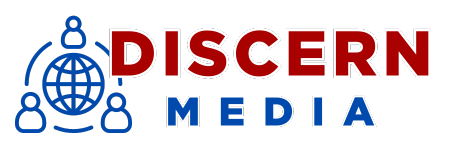The World Economic Forum (WEF) continues to “quietly” work on putting itself, and a bunch of massive “partner” corporations at the center of redefining, and if need be, defining the world we live in – whether it’s about artificial intelligence, or online censorship.
The informal Switzerland-based group gathering representatives of global elites has repeatedly shown interest in coming up with a variety of essential standards that should, from its point of view, be universally accepted and implemented as the last word on any of these subjects.
When it comes to justifying online censorship, Big Tech’s social platforms habitually avoid explaining what it is they mean when they delete content and deplatform people because of “misinformation,” “hate speech,” etc, where such things begin and end, and who makes such decisions, based on what authority.
Not least because of this lack of clarity, many people suspect that these sites avoid explaining themselves because there is nothing to explain – the censorship decisions are arbitrary, designed to serve a policy or a narrative rather than combat “misinformation” and the like.
All this undermines their trustworthiness – but, WEF to the rescue, or at least so it hopes. The organization said on its website that it – or rather, what it calls its Global Coalition for Digital Safety – has produced a document called, “Typology of Online Harms.”
The stated goal is to define six categories of harmful content, and thus create definitions that facilitate “multi-agency and cross-border action.”
There is also praise of the European Union’s Digital Services Act (DSA) in this context, but also talk of WEF’s Coalition providing “common foundational language” that is still lacking through DSA’s limited reach (namely, it is not global, whereas the “Typology” aims for just such impact.)
Observers wary of WEF’s actions and intentions need not be concerned, however; it will all not only be balanced in terms of “legal, ethical, social, technological, and policy considerations,” as Coalition Project Lead Agustina Callegari put it, but will also – WEF promises – manage to be “rooted in international human rights frameworks.”
With this “disclaimer” out of the way, the writeup on the WEF’s website proceeds to detail the six categories, in order in which you’d expect them (from worst to – “misinformation.”)
They are, “Threats to personal and community safety (including Child sexual exploitation), Harm to health and well-being, Hate and discrimination, Invasion of privacy,” and, “Deception and manipulation” (i.e., disinformation and misinformation).
Article cross-posted from Reclaim The Net.
It’s becoming increasingly clear that fiat currencies across the globe, including the U.S. Dollar, are under attack. Paper money is losing its value, translating into insane inflation and less value in our life’s savings.
Genesis Gold Group believes physical precious metals are an amazing option for those seeking to move their wealth or retirement to higher ground. Whether Central Bank Digital Currencies replace current fiat currencies or not, precious metals are poised to retain or even increase in value. This is why central banks and mega-asset managers like BlackRock are moving much of their holdings to precious metals.
As a Christian company, Genesis Gold Group has maintained a perfect 5 out of 5 rating with the Better Business Bureau. Their faith-driven values allow them to help Americans protect their life’s savings without the gimmicks used by most precious metals companies. Reach out to them today to see how they can streamline the rollover or transfer of your current and previous retirement accounts.
Bypass Big Tech Censors
- See all the latest videos on conservative politics, culture, and faith, plus articles patriots need to read at Discern.tv.



